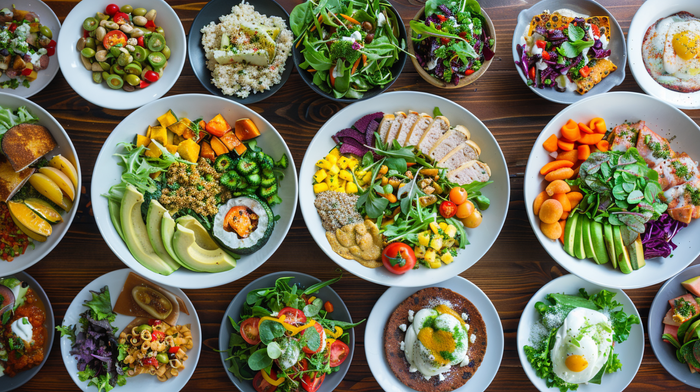How to plan a diet to effectively fight excess weight?

Fighting excess weight is a process that requires patience, discipline and a well-thought-out plan of action. One of the key elements of this process is a properly planned diet. Properly composed meals can not only help reduce excess pounds, but also improve overall well-being and health. Here are some tips on how to plan your diet to successfully fight excess weight.
1. set realistic goals
The first step to successfully combating excess weight is to set realistic goals. Instead of aiming for rapid weight loss, focus on gradual weight loss. A safe pace is to lose 0.5 to 1 kg per week. Setting realistic goals will help avoid frustration and discouragement, and reduce the risk of the yo-yo effect.
2. know your caloric needs
To successfully reduce weight, you need to know your daily caloric requirements. You can calculate them using various available online calculators or consult a nutritionist. Remember that to lose weight, you need to consume fewer calories than your daily requirement.
3. plan meals in advance
Planning your meals in advance is the key to success. This will help you avoid the temptation to reach for unhealthy snacks or ready-made meals full of empty calories. Take some time once a week to plan your meals and then prepare a shopping list. Be sure to include a variety of products in your diet that will provide you with all the nutrients you need.

4. choose whole grain products
Whole-grain products are rich in fiber, which helps keep you feeling fuller for longer, which can curb excessive snacking. Replace white bread, pasta and rice with their whole-grain counterparts. Fiber also helps improve digestive function.
5. don't forget about protein
Protein is a key component of the diet, especially during weight loss. It helps build muscle mass and also gives you a longer feeling of satiety. Put lean sources of protein in your diet, such as poultry, fish, legumes and reduced-fat dairy products.
6. drink lots of water
Water is essential for our bodies, and the right amount of water can aid weight loss. Drink at least 2 liters of water a day. Water not only hydrates, but can also help satisfy hunger between meals.
7. limit consumption of sugar and processed foods
Sugar and processed foods contain a lot of empty calories that do not provide nutritional value to the body, but only contribute to weight gain. Try to avoid sugary drinks, candy, fast food and other processed foods.
8. be physically active
Diet is only one element in the successful fight against excess weight. Regular physical activity is equally important. Try to exercise at least 30 minutes a day. You can choose any form of activity that interests you, be it walking, cycling, swimming or weight training.

9. listen to your body
It is important to listen to the signals your body sends. Eat when you are hungry, but try to avoid overeating. Learn to recognize when your body needs food and when it is simply responding to stress or boredom. Mindful eating, or mindful eating, can help you establish a healthier relationship with food.
10. don't be afraid to ask for support
Changing eating habits and lifestyle can be difficult, so don't be afraid to ask for support from family, friends or professionals such as nutritionists or personal trainers. Having a support system can make the weight loss process much easier and help you stay motivated.
Remember that the fight against excess weight is a marathon, not a sprint. It's important to approach the process with patience and focus on gradual changes that will yield lasting results in the long run. Successful weight management is not just a temporary diet, but more importantly a healthy lifestyle that is worth sticking to for life.




